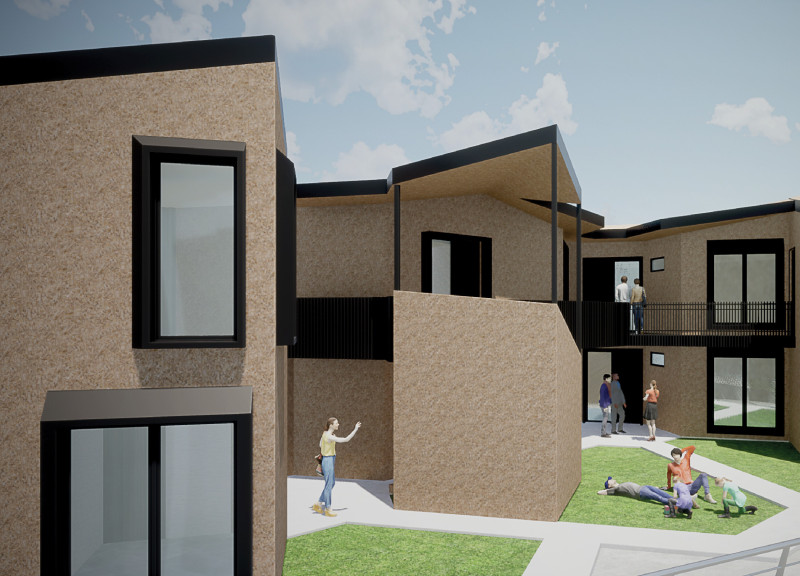5 key facts about this project
The MAS (Multiple Assembly System) is a modular design that challenges traditional architectural forms through the use of pentagonal shapes. Located in an urban environment that requires flexibility, it aims to fill gaps in the city and create spaces that encourage interaction among people. The overall concept highlights modularity, prioritizing an assembly process that is accessible, making it possible for community members to get involved in its construction.
Modularity
At the heart of the design is the idea of modularity. This approach allows different units to be assembled in various configurations, making it possible to adapt to different site conditions. By moving away from standard geometric arrangements, the MAS encourages diverse spatial layouts. This flexibility not only serves functional needs but also engages users in a dynamic experience of the environment around them.
Sustainability
The project considers sustainability by incorporating principles from the Circular Economy. This means that materials are chosen to minimize waste and environmental harm right from the design phase. Components can be reused or repaired, giving them a longer lifespan. This focus on sustainable practices addresses both ecological concerns and the need for resources within urban settings, promoting a healthier environment.
Community Engagement
A key aspect of the design is its aim to involve the community through a simplified assembly process. This reduces reliance on specialized labor, allowing local residents to participate actively in building. By encouraging a hands-on approach, the design fosters a sense of ownership within the community. This involvement aligns with modern architectural trends that emphasize social connection and collective contributions.
The MAS creates a relationship between space and function that allows for exploration and interaction. The pentagonal geometry shapes not only the structure but also the experiences of those who use it, encouraging a deeper engagement with the urban environment.























































